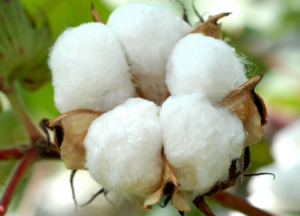22 Apr New Study on Social and Environmental Impact of Fairtrade Cotton
22 April, 2017
 In a multi-billion dollar global clothing and textile industry that relies on cotton, millions of smallholder farmers do not earn enough money from conventional cotton farming to pay for life’s essentials. Farmers are facing multiple long-term threats, including climate change, food security, biotechnology, the circular economy and ‘fast fashion’, trends which are combining to create both risks and opportunities for the cotton industry.
In a multi-billion dollar global clothing and textile industry that relies on cotton, millions of smallholder farmers do not earn enough money from conventional cotton farming to pay for life’s essentials. Farmers are facing multiple long-term threats, including climate change, food security, biotechnology, the circular economy and ‘fast fashion’, trends which are combining to create both risks and opportunities for the cotton industry.
New research by Fairtrade aims to provide fashion brands with a useful new tool to enhance visibility of their cotton sourcing and deepen understanding of their social and environmental responsibilities. Fairtrade said that apparel brands that rely on cotton now have a real opportunity to make informed strategic decisions that will help create a more resilient business and be more accountable for their environmental and social impacts.
The study used a robust methodology which measured the environmental and social impacts on rural households in India, one of the world’s largest producers of cotton. The valuation tool translates environmental and social values into the language of business and economics. It converts impacts and dependencies into costs and benefits expressed in monetary terms. With an overall indication of cost and benefit, companies can identify trade-offs and synergies in a systematic way.
The study found that the combined social and environmental costs of Fairtrade cotton farming are five times lower than that of conventional cotton farming. Data showed that the impacts of Fairtrade farming methods were 97% lower for the social elements and 31% lower for environmental components studied.
The most significant social advantage for Fairtrade farmers was having more income. The research compared community benefits from Fairtrade Premiums, wages, income for farmers, engagement of unacceptable labour practices, such as child labour and social cost of overtime. It revealed that Fairtrade cotton farmers tend to have lower social costs and higher social benefits such as fairer wages and investment in local schools.
Fairtrade cotton performed significantly better than conventional cotton for all environmental KPIs. Areas surveyed included land use, water pollutants, water use, GHG emissions and soil pollutants. It was only for land use where Fairtrade cotton’s cost was a little high as the yield for organic practices for cotton per acre is lower than conventional.
Subindu Garkhel, Cotton Manager at the Fairtrade Foundation said: “Cotton is an integral part of our lives, from the sheets on our beds to the identity we project through the clothes we wear. Not only that, but cotton also provides livelihoods for millions across the globe. But there is a strong cost for people and planet with cultivating the cotton that goes into our clothes, and our study shows that is markedly higher for conventional cotton farming. This research illustrates how Fairtrade empowers farmers to decide their own future, is better for their communities and has a substantially lower footprint than conventional cotton.”
The research revealed that benefits such as the Fairtrade Minimum Price and the Fairtrade Premium are unique to Fairtrade certification, and conventional cotton farming was found to only provide income for farmers based on the local market prices for cotton. The study was released to coincide with the anniversary of the Rana Plaza garment factory collapse, a tragedy which killed 1134 people and woke up the world to the problems in our fashion supply chains.
It marks the start of Fashion Revolution Week (24 – 30 April 2017), the global campaign demanding greater transparency in the fashion supply chain.
